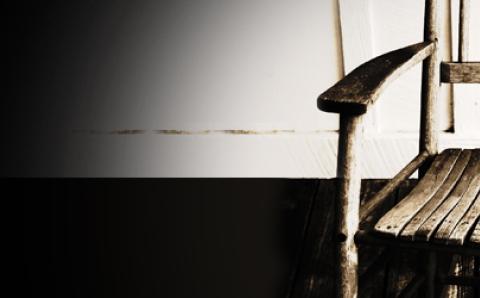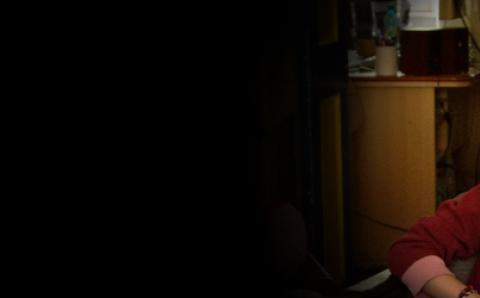Tomorrow’s Theology
Retired pastor Edwin Walhout says theologians will have to find a better way to understand the biblical doctrine of sin and salvation (“Tomorrow’s Theology,” June 2013).
With all due respect, Rev. Walhout, when you served churches in the CRC did you not preach the story of sin and salvation? The question could be asked, especially to those in leadership roles who have signed the form of subscription, to either stand behind those confessions or else form [another denomination].
Praise God that the church does not save; Jesus does (1 Cor. 15:13-14). Like Job, who am I to question God? I have only to trust in his promises.
I would hope The Banner would run an article that would stimulate your readers in their personal faith relationships with the God we trust.
—Hans Visser
Taber, Alberta
Mr. Walhout’s piece (“Tomorrow’s Theology”) is unfortunately symptomatic of a spiritual malaise in the denomination, extending from the upper echelons down to the local congregations. While diversity exists in the scientific theories on the world’s creation, which can be safely debated, subsumption of first-order doctrines like the resurrection and atonement into “scientific theory,” not provable fact, as Walhout suggests, is effectively an invitation to heresy, patently unhelpful in these times of immense spiritual confusion, supporting those who have lost their first love and would seek to undermine and render ineffective the church and its vital witness to the world.
—Wesley Kwong
Portland, Ore.
I want to voice my support for Walhout’s bold statement (“Tomorrow’s Theology”). I especially appreciate his format of presenting questions without presuming to answer them for everyone. This is exactly the kind of conversation the church must have. Christians simply cannot turn away from scientific evidence, or worse, try to bend scientific principles to fit a particular theology. As God reveals more and more of the natural world through the tool of our perceptive minds, we must seek to understand the unalterable Truth of the Bible without resorting to dogmatic literalism.
We have and will make mistakes, but this is why we must continue to dialogue about and with our Lord, not blindly or purposefully calcify the attitudes of previous generations.
—Jim Baker
Grand Haven, Mich.
Yes, Virginia
“Yes, Virginia, There Is a Holy Spirit” (May 2013)—and he is working in and with the Christian Reformed Church. We are a hands-on denomination, and that is OK. The world needs a church that is looking after the needs of people, and we are comfortable doing so.
I believe that in these last days we are living in a world that is lost and bound in sickness and addictions. Our Lord and Savior gave us the Holy Spirit to be a light and power in this age we live in. But we are not so comfortable with the gifts of the Spirit. As our pastor said, God has many gifts for his church but when we get to heaven we will see that we didn’t always unwrap them. Let’s pray that this may change.
—John Voordenhout
Burlington, Ontario
The opinion piece by Jay Knochenhauer (“Yes, Virginia, There Is a Holy Spirit”) misses the mark, I think. Knochenhauer was critical of a church leader who addressed the recent prayer summit, lamenting, “The CRC has historically not made much room for the work of the Holy Spirit.” He went on to provide evidence of the Holy Spirit’s existence and work throughout the ages. However, that church leader at the prayer summit was not denying the Holy Spirit, or even commenting on the Holy Spirit. He was commenting on the CRC.
—Arie Hoogerbrugge
Souris, Prince Edward Island
Roman Catholic and Reformed Baptism
With a great deal of interest I read the news item “Catholic, Reformed Churches Agree on Baptism” (April 2013), especially the last sentence: “The agreement, which applies solely to churches in the U.S., is unusual elsewhere.” To the best of my knowledge, ever since the Reformation, Reformed churches in Europe, particularly in the Netherlands, have always recognized Roman Catholic baptism as legitimate. I believe that the CRCNA continues this long-standing tradition.
When the Mission Board of the CRC decided in 1966 to work together with the Presbyterian Church of Brazil, Rev. Henry Evenhouse made it abundantly clear that CRC personnel would not rebaptize Roman Catholic baptized persons unless specifically requested. That tradition is continued today by the Evangelical Reformed Church of Brazil. Ever since we have had a mutually beneficial relationship with the Roman Catholic Church in Brazil.
—Simon Wolfert
Surrey, British Columbia
Beer in The Banner
The Banner highlights a brewery in Colorado (“New Beer Named After Colorado Farmer,” April 2013). When I was 25 I became a widow with two children, the result of a drunk driver hitting the gas tank of my husband’s truck.
Someone please tell me the good versus the evil of alcohol. Doesn’t it make more sense to publicize and face the hazards of alcohol?
—Shirley Bareman
Jenison, Mich.
Don’t Be So Sure
I agree that concepts like the Trinity, the incarnation, and God’s purposes in election are ultimately shrouded in mystery (“Don’t Be So Sure,” April 2013). However, I was puzzled to see justification included in these mysterious concepts. Surely the Bible is clear enough about the concepts of divine wrath against sin, substitutionary atonement, and imputed righteousness that we can have a sufficiently clear picture of the contours of the gospel.
Of course to study the richness of the biblical text takes some effort, but to substitute claims of “mystery” for this hard work far too conveniently fits the politically correct mood of our times that regards polemic as close-minded, doctrine as a four-letter word, and an open-minded ecumenical spirit to be pursued at almost all costs. Is the way of salvation a mystery in the Bible? Don't be so sure.
—Randy Stadt
Edmonton, Alberta
Stealing Sermons?
Re your editorial and the article “I Think the Pastor Stole That Sermon” (February 2013): I have long believed that the best approach to teaching preaching is not to teach at all but to expose theological students to a broad range of styles of both preaching and worship and then to help them to better understand how God has wired them and what style will best reflect who they are. Frankly, I have never heard nor read a sermon that I could plagiarize. Thoughts? Yes. Ideas? Yes. Illustrations? Yes. But because they arise out of me as a person, what is said and how it is said needs to be true to who I am. The Spirit needs to speak through me. I don’t want to be channeling someone else’s words or experiences.
—Ron vanAuken
Toronto, Ontario









